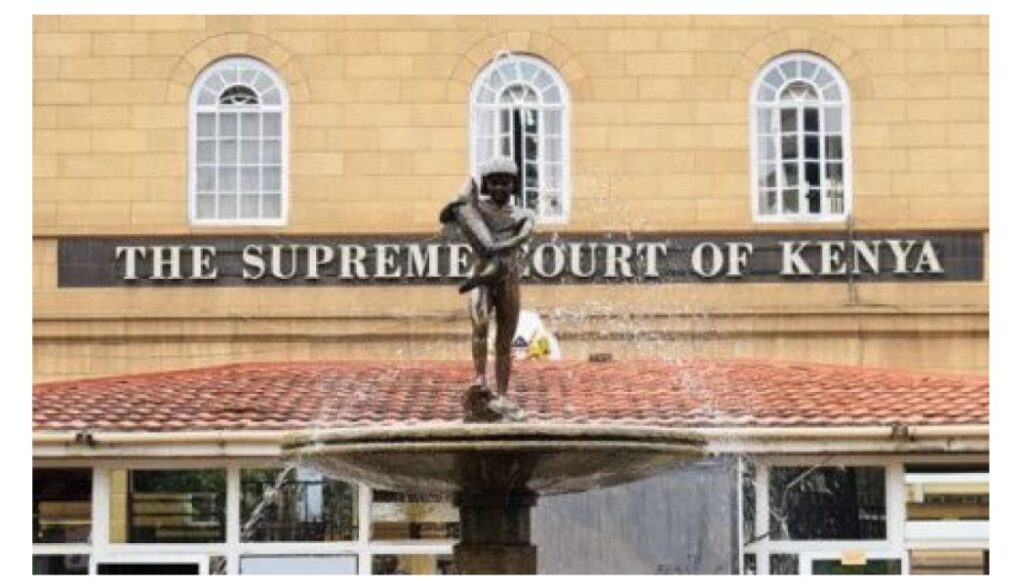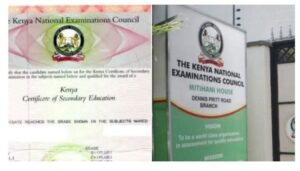Supreme Court cautions against politicizing IEBC, gives direction on boundary delimitation

Supreme Court cautions against politicizing IEBC, gives direction on boundary delimitation
The Supreme Court has sounded a stern warning on Kenya’s troubled history of mistrust in its electoral processes, noting that the legitimacy of the country’s democratic order depends not only on strong institutions but also on the fidelity of political leaders to the Constitution and the sovereignty of the people.
In its advisory opinion on the mandate of the Independent Electoral and Boundaries Commission (IEBC), the Court reflected on the recurring trust deficit that has plagued Kenya’s elections from the findings of the Kriegler Commission after the 2007–2008 post-election crisis to the litigation culminating in the 2022 presidential petition.
The judges observed that this deficit is no accident but the product of decades of politicization of the electoral process, relentless attacks on the independence of IEBC, and failure to implement electoral reforms in good faith.
“This deficit did not occur by accident, rather it is the product of decades of politicization of the electoral process, relentless attacks on the Commission’s independence, and a failure to implement electoral reforms in good time and in good faith,” ruled the 7-judge bench.
They cautioned that leaders who undermine the Commission for short-term political gain weaken the very institutions they are duty-bound to protect.
The judges urged that, instead, they should focus on addressing structural weaknesses, enhancing accountability, and reinforcing public confidence in the impartiality and competence of IEBC.
The Supreme Court further noted that the IEBC cannot undertake the crucial process of delimiting electoral boundaries in the absence of Commissioners.
Delivering its advisory opinion in Reference No. E004 of 2024, the Court held that delimitation is a constitutional mandate reserved strictly for Commissioners under Article 88(4)(c) of the Constitution and cannot be delegated to the Secretariat.
Nepal’s parliament set on fire after PM resigns over anti-corruption protests
DPP Ingonga elected as member of international prosecutors’ body
Government announces recruitment of 400 ICT interns; How to apply
New bill seeking to extend terms of the President, MPs, MCAs and Governors from 5 to 7 years
WHO backs weight-loss drugs to treat diabetes and obesity
The judges emphasized that while the Secretariat plays an important role in supporting the Commission’s operations, it lacks authority to carry out constitutional functions such as boundary reviewing.
On the lapsed timelines under Article 89(2) and (3), the Court ruled that although delimitation must ordinarily be conducted every 8 to 12 years and completed at least 12 months before a General Election, extraordinary circumstances such as the prolonged vacancy of commissioners may justify an extension.
However, the Court clarified that only Parliament, through a properly enacted constitutional amendment or resolution in line with recommendations of the National Dialogue Committee (NADCO), can extend such timelines.
The Court also rejected the Attorney General’s objection that the IEBC lacked capacity to bring the reference when it was not properly constituted.
It found that the Secretariat, as custodian of the Commission’s day-to-day functions, was within its right to seek the Court’s guidance on matters of urgent constitutional importance.
In its decision, the Court underscored the principle of equality of the vote, warning that failure to review boundaries in line with population growth risks undermining fair representation and the integrity of the 2027 General Election.
HELB extends deadline for loan applicantions
Open University announces new programmes fully sponsored options (DETAILS)
Chaos as Meru University students clash with police
Government spending Ksh1.1 billion to run eCitizen platform
Follow us





